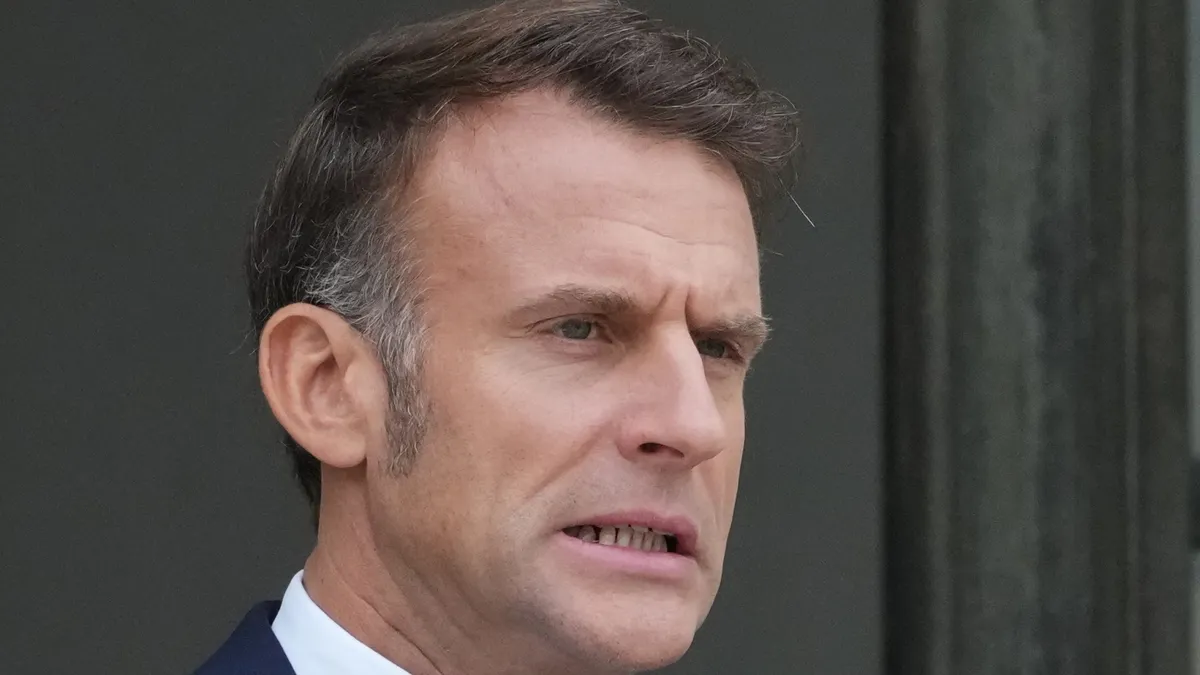
In a significant political development on Friday, French President Emmanuel Macron re-appointed Sebastien Lecornu as prime minister, merely days after Lecornu's resignation. This decision comes in the wake of intense negotiations aimed at breaking the political deadlock that has gripped France. Lecornu's re-appointment is seen as a critical move for Macron, who is striving to establish a functioning government and deliver a budget amidst escalating economic challenges and a ballooning national debt.
France is currently facing a myriad of economic issues, including a staggering public debt that poses a significant risk to its stability. The political crisis has compounded these challenges, raising concerns within the European Union about France's ability to manage its economic affairs. With Macron's second term set to run until 2027, many observers view this as a crucial opportunity for him to revitalize his administration and restore confidence in his leadership.
Macron's office issued a brief statement late Friday announcing Lecornu's re-appointment, just a month after he was initially named prime minister. This rapid shift comes after Lecornu resigned due to internal strife within his newly formed government. In his statement on social media, Lecornu expressed his commitment to fulfilling the responsibilities of his new role, emphasizing the urgent need to produce a budget by year-end and address the pressing issues faced by the French populace.
As part of his re-appointment, Lecornu indicated that any members of his new cabinet must relinquish their ambitions to run for the presidency in 2027. He underscored the importance of bringing fresh perspectives and diverse skills to the government. "We must put an end to this political crisis that exasperates the French and damages our national image," he stated.
Lecornu's abrupt resignation earlier this week, shortly after unveiling a cabinet that faced opposition from a key coalition partner, has intensified calls for Macron to either step down or dissolve parliament—a move he previously executed in June 2024. Although there have been urgent calls for decisive action, Macron has opted for a more calculated approach, engaging in discussions with political party leaders to explore viable solutions.
The implications of this political instability are profound, particularly as France grapples with its debt crisis. By the end of the first quarter of 2025, the country’s public debt reached a staggering 3.346 trillion euros (approximately $3.9 trillion), which constitutes 114% of its gross domestic product (GDP). Additionally, France's poverty rate climbed to 15.4% in 2023, marking the highest level since records began in 1996, according to data from the national statistics institute. These economic challenges are alarming to financial markets, ratings agencies, and the European Commission, which has urged France to adhere to EU regulations regarding debt limits.
In light of the ongoing political deadlock, the two largest opposition parties in the National Assembly—the far-right National Rally and the far-left France Unbowed—were notably excluded from discussions on Friday. The National Rally advocates for fresh legislative elections, while France Unbowed is calling for Macron's resignation. Despite these challenges, Lecornu remains optimistic about the potential for collaboration among Macron's centrist bloc, its allies, and segments of the opposition to form a working government.
However, to navigate this political impasse, Lecornu will need to seek compromises that may involve abandoning unpopular policies, including the contentious pension reform, which raises the retirement age from 62 to 64. This reform was previously enacted without a parliamentary vote amid widespread protests in 2023, leading to further dissatisfaction among voters.
The current political crisis is a direct consequence of Macron's unexpected decision in June 2024 to dissolve the National Assembly, which resulted in a hung parliament where no party commands a majority. This gridlock has not only unsettled investors but has also frustrated the electorate, halting crucial efforts to rein in France's soaring deficit and public debt. With Lecornu's re-appointment, there remains a glimmer of hope that a stable government can emerge, but the path forward is fraught with challenges.